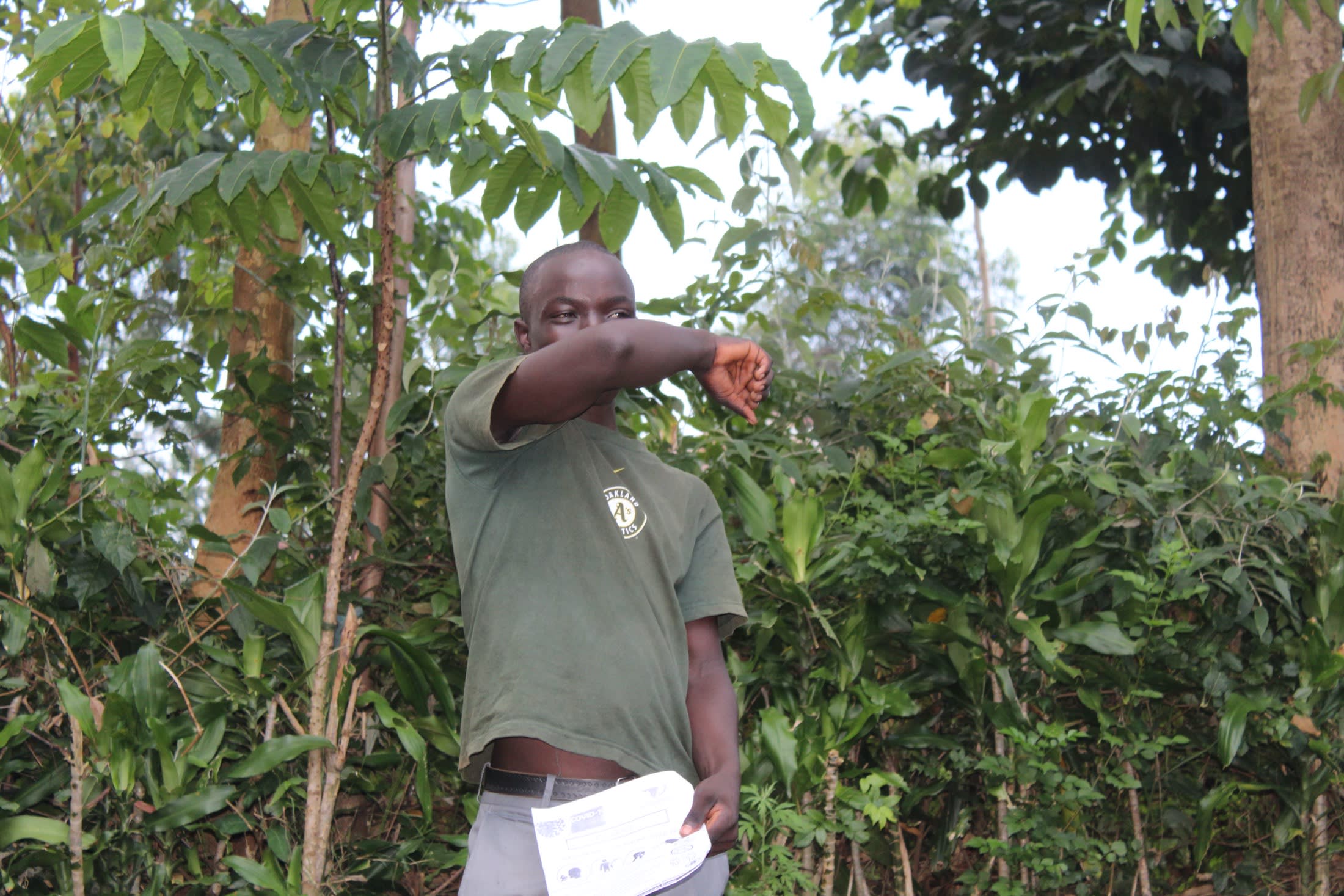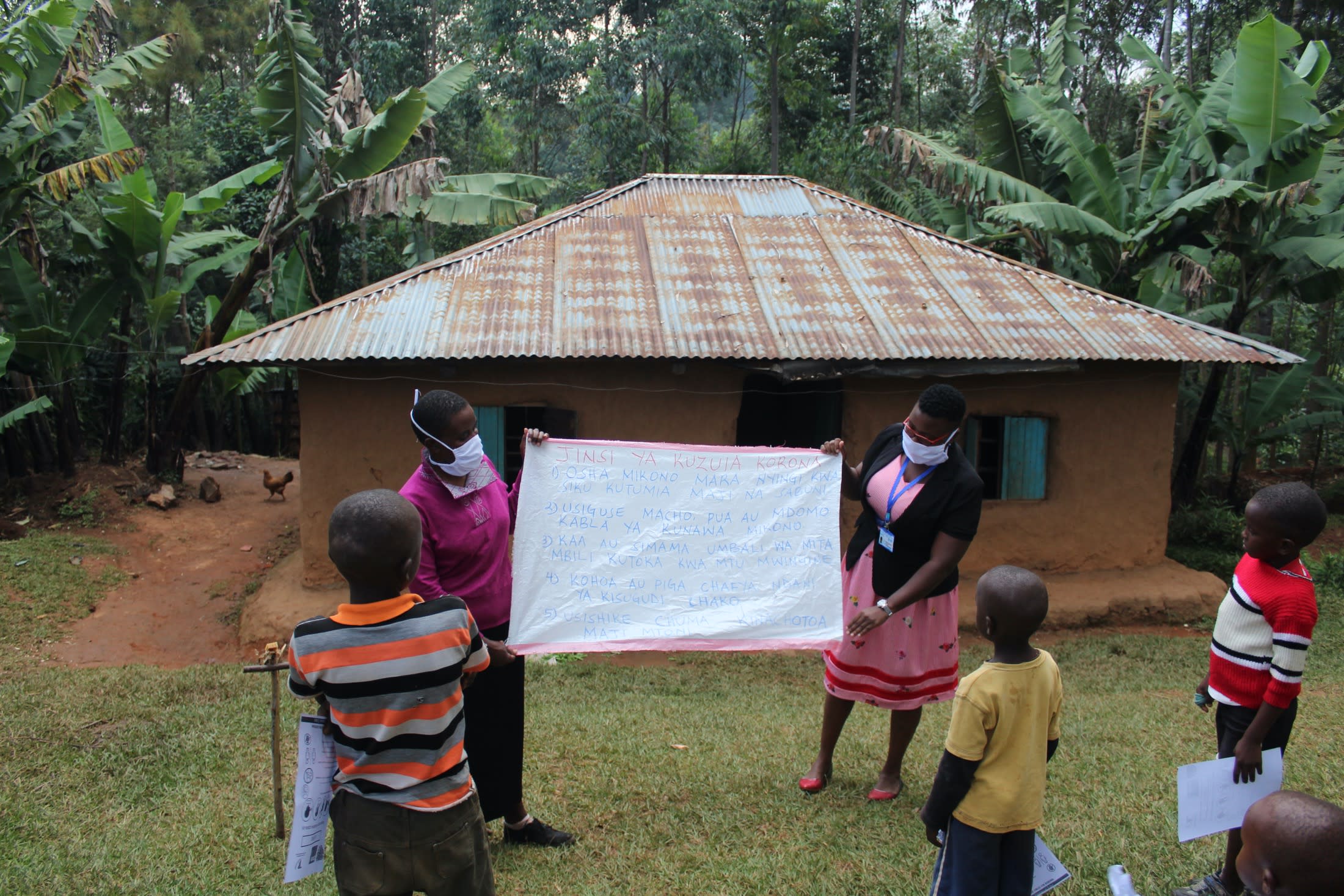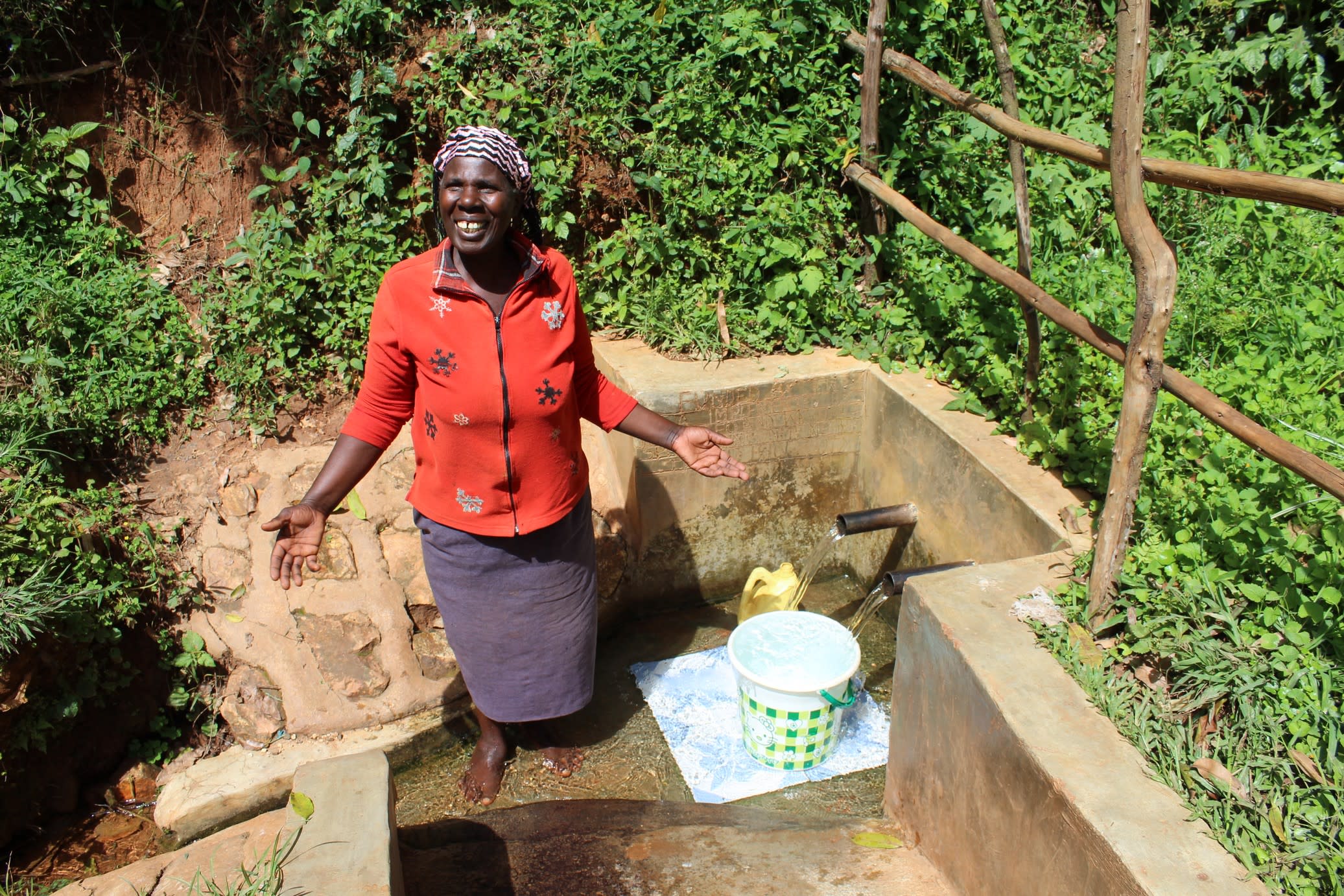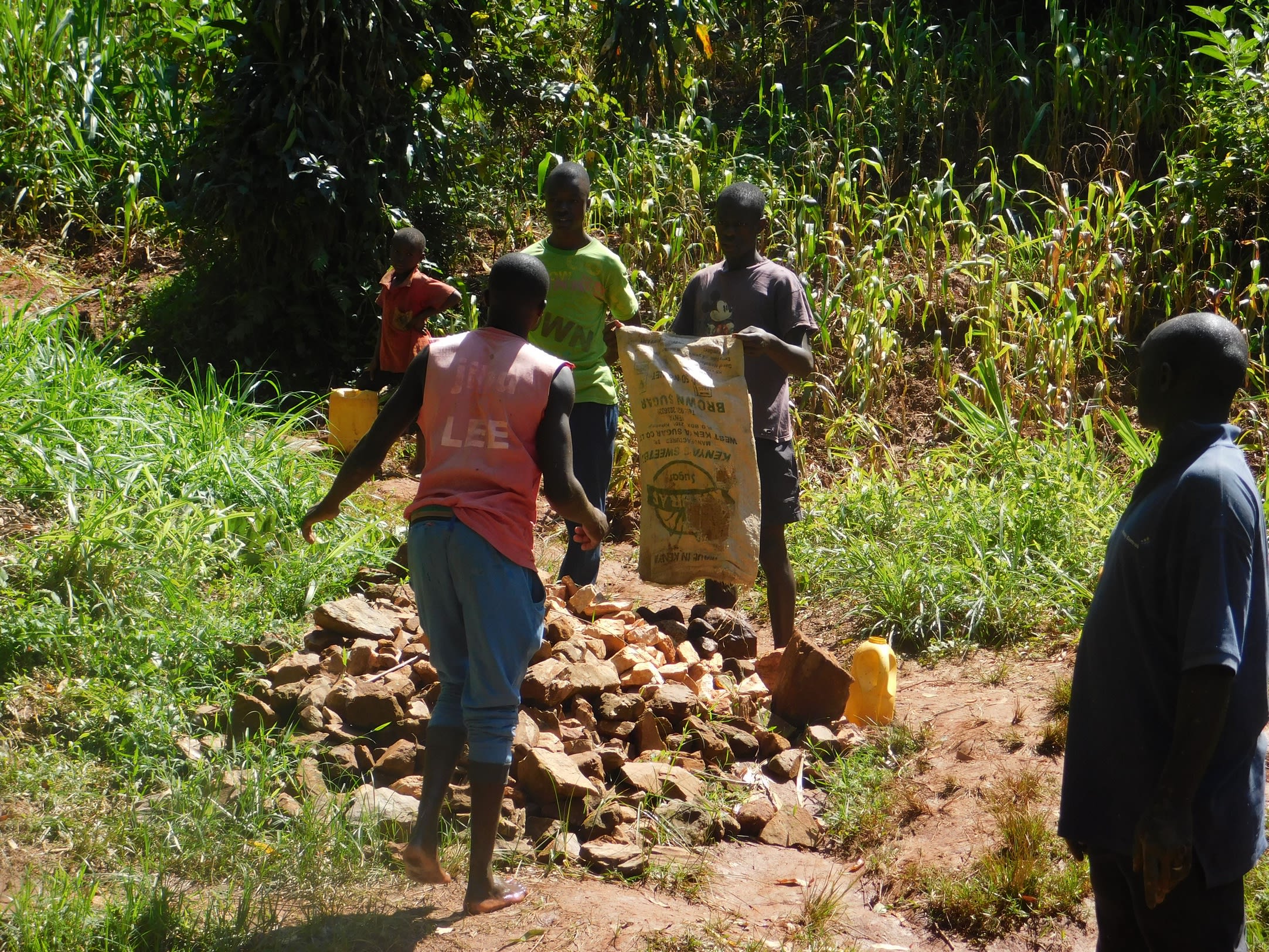A normal day in Jivovoli involves people waking up before the sunrise to get chores done. They try to make ends meet by depending on odd jobs to keep their families running. Women are seen doing the most work around the village, since most of the men are away in the cities to find jobs.
Women earn extra income by gardening to sell vegetables in the local market. In the evenings when children return home from school, they help their mothers by fetching water and washing utensils before they focus on their homework.
Water
Wamunala Spring is a main source of water for Jivovoli Community. It serves 40 different families, suppling the water they need for drinking, cooking, cleaning, and watering gardens during the dry months.
Wamunala Spring pools above the ground, appearing as a puddle, where containers are filled by dunking them under the murky surface. This source is open to contamination, especially during the rains when dirt, chemicals, and feces are washed into the water. We could even see bugs swimming around in the water.
People here suffer from typhoid and drinking this water.
Sanitation
Most of the fetched water is stored outside in the same uncovered containers. Even if the water people fetched was clean, it would be dirty because of poor storage habits.
Less than half of households have a pit latrineThose we observed lack both roofs and doors, the floors are unstable, and users face the risk of falling into the pit.
There's nowhere to wash hands, and there aren't many other sanitation facilities either; just a few clotheslines strung up between the dozens of families living here.
There's lots of garbage thrown in the back of compounds. The litter blows about the community.
"We are not doing so well as a community on matters concerning water, sanitation and hygiene. We end up using a lot of money in treating diseases and doing less on trying to prevent them. Therefore, we would be glad of any help rendered to get us out of this predicament that has befallen us," Mr. Henry Masiza said.
Here's what we're going to do about it:
Training
Community members will attend hygiene and sanitation training for at least two days. This training will ensure participants have the knowledge they need about healthy practices and their importance. The facilitator plans to use PHAST (Participatory Hygiene and Sanitation Transformation), CLTS (Community-Led Total Sanitation), ABCD (Asset-Based Community Development), group discussions, handouts, and demonstrations at the spring. One of the most important topics we plan to cover is the handling, storage, and treatment of water. Having a clean water source will be extremely helpful, but it is useless if water gets contaminated by the time it’s consumed. Hand-washing will also be a big topic.
Training will also result in the formation of a committee that will oversee operations and maintenance at the spring. They will enforce proper behavior around the spring and delegate tasks that will help preserve the site, such as building a fence and digging proper drainage. The fence will keep out destructive animals, and the drainage will keep the area’s mosquito population at a minimum.
Sanitation Platforms
On the final day of training, participants will select five families that should benefit from new latrine floors.
Training will also inform the community and selected families on what they need to contribute to make this project a success. They must mobilize locally available materials, such as bricks, clean sand, hardcore, and ballast. The five families chosen for sanitation platforms must prepare by sinking a pit for the sanitation platforms to be placed over. All community members must work together to make sure that accommodations and food are always provided for the work teams.
Spring Protection
Protecting the spring will ensure that the water is safe, adequate and secure. Construction will keep surface runoff and other contaminants out of the water. With the community’s high involvement in the process, there should be a good sense of responsibility and ownership for the new clean water source.
Fetching water is predominantly a female role, done by both women and young girls. Protecting the spring and offering training and support will therefore help empower the female members of the community by giving them more time and efforts to engage and invest in income-generating activities.
This project is a part of our shared program with Western Water And Sanitation Forum (WEWASAFO). Our team is pleased to provide the reports for this project (formatted and edited for readability) thanks to the hard work of our friends in Kenya.

 Protected Spring
Protected Spring
 Rehabilitation Project
Rehabilitation Project








































